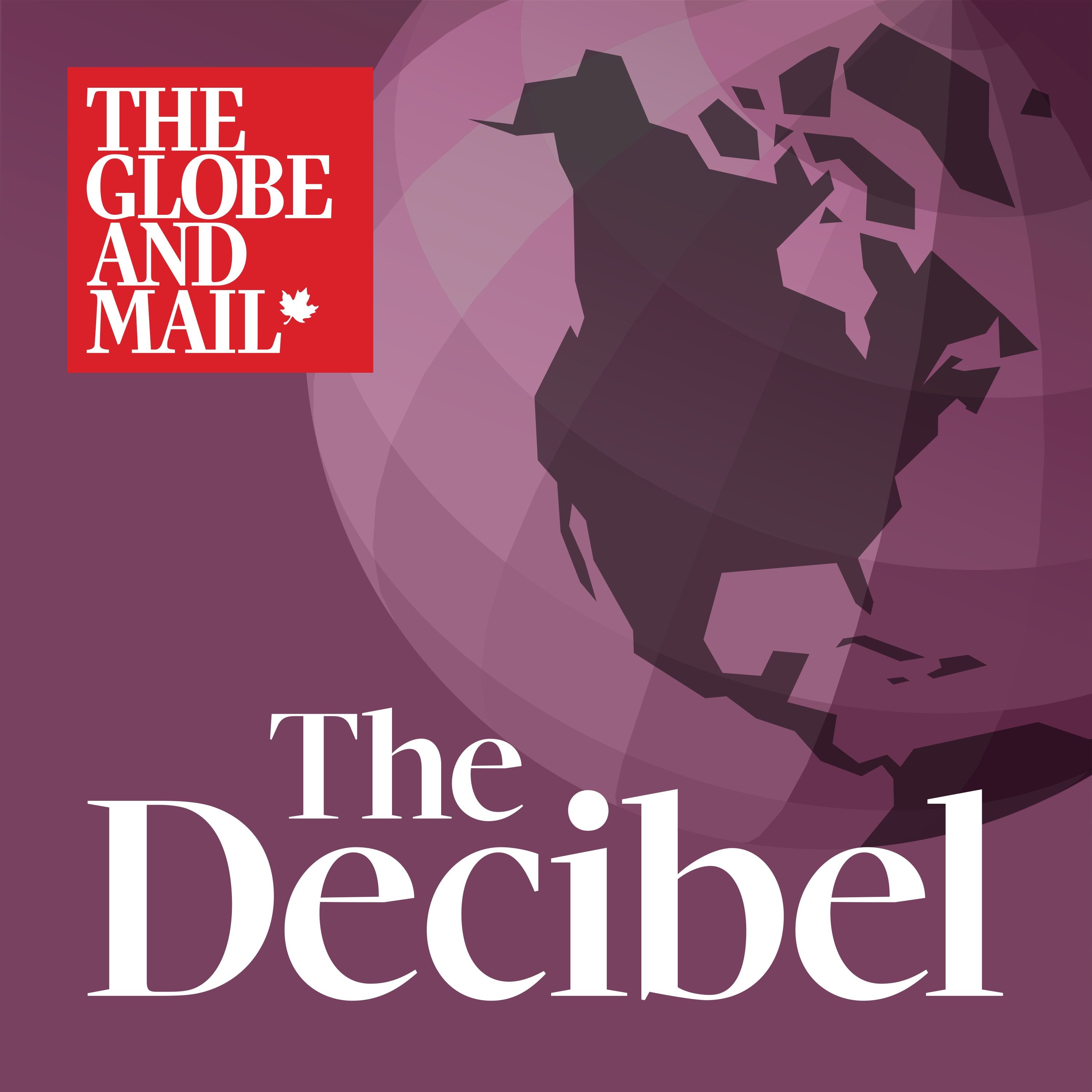The Decibel
Context is everything. Join us Monday to Friday for a Canadian daily news podcast from The Globe and Mail. Explore a story shaping our world, in conversation with reporters, experts, and the people at the centre of the news.
The argument for AI regulation after Tumbler Ridge

Months before the mass shooting in Tumbler Ridge, B.C., earlier this month, the shooter was banned from OpenAI, the company behind ChatGPT, for violating its usage policy. The Wall Street Journal, which first reported this, said that the interactions with ChatGPT were describing scenarios involving gun violence. That has furthered calls for the Canadian government to regulate AI companies and their products – but there are challenges.
Taylor Owen is an associate professor at McGill and founding director of McGill’s Centre for Media, Technology and Democracy. He’s also host of The Globe and Mail podcast Machin...
Winners and losers after a year of Trump tariffs

On Tuesday night, U.S. President Donald Trump touted his tariff regime, after a Supreme Court decision that severely limited his ability to impose tariffs. Now countries trading with the U.S. are left with even more uncertainty about what will come next.
Jason Kirby is a staff reporter for The Globe’s Report on Business. He explains what the court ruling means for Canada, what other tariffs could be coming our way soon and who have been the winners and losers in the trade war over the last year.
Questions? Comments? Ideas? Email us at...
Mexico’s uneasy balance of power between cartels and government
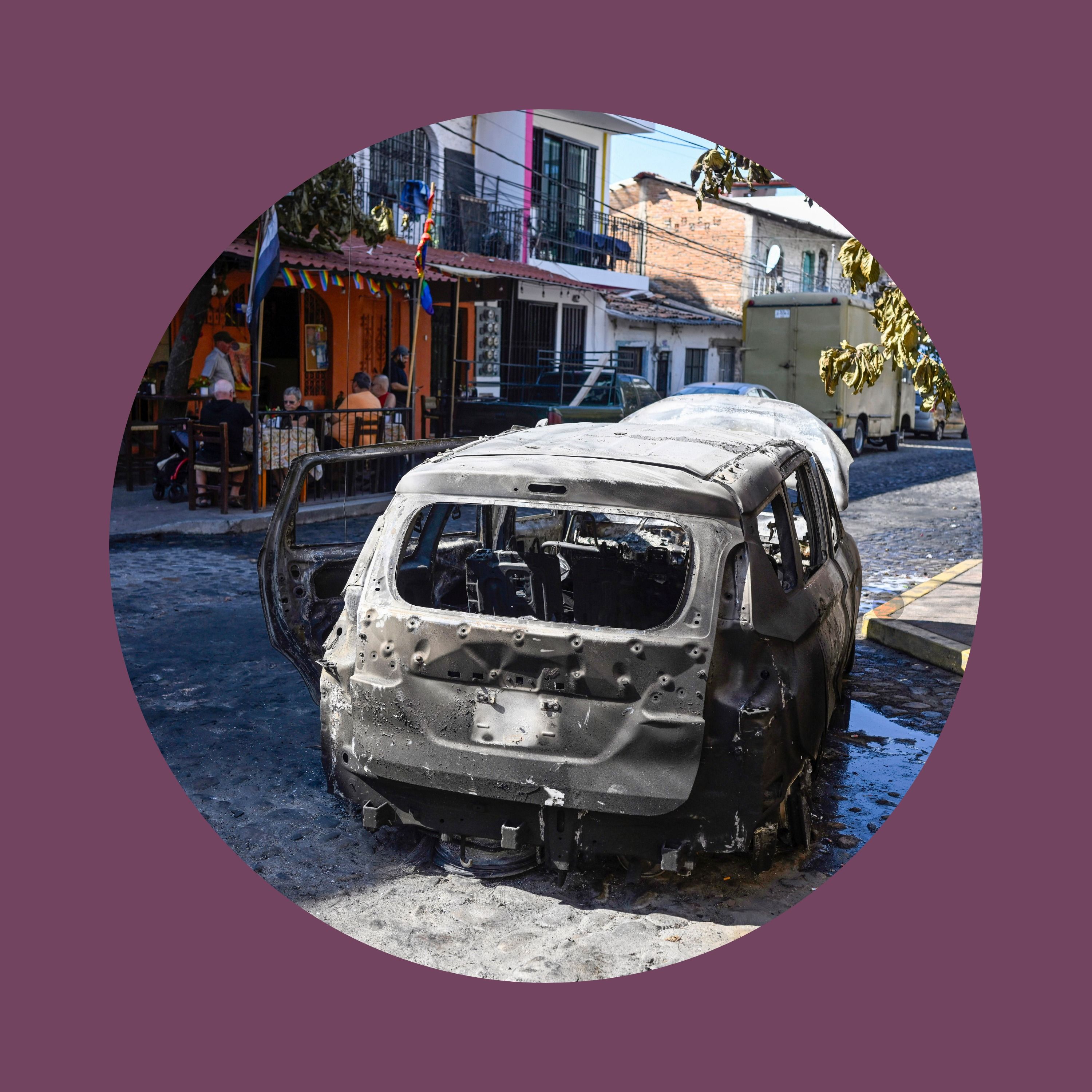
On Tuesday, Canadian airlines began to resume operations in Puerto Vallarta and Guadalajara. They had been suspended days earlier after the Mexican army killed El Mencho, the leader of the Jalisco New Generation Cartel, leading to a wave of violence across Jalisco and elsewhere in Mexico. Residents of Puerto Vallarta, the popular tourist destination, and Guadalajara, Mexico’s second-largest city, were told to shelter in place. Many Canadian tourists found themselves stranded.
David Agren is a freelance journalist covering Latin America. He joins The Decibel to talk about how cartels operate in Mexico, how the government has de...
The payout and relationship that led to crisis at a pension plan

It began with three executives from the CAAT Pension Plan raising concerns over a $1.6-million vacation payout and a relationship between the CEO and an employee. That has now led to a ‘full-blown crisis over governance,’ with nearly all of the senior leadership team changed or gone, including the long-standing CEO who’s on administrative leave.
The Globe’s institutional investing reporter James Bradshaw has been covering the turmoil at CAAT. Today, he explains how these issues led to such turbulence and why it’s so important to have steady leadership at one of Canada’s big pension plan...
Skinny, Inc. part 1: the Canadian connection to Ozempic

Dr. Daniel Drucker’s research helped pave the way for Ozempic, the blockbuster GLP-1 class drug. The endocrinologist has been researching the effects on Ozempic’s active ingredient semaglutide in the body for decades.Today he’ll show us around his lab and explain how a stout lizard kept in a freezer helped unlock the science behind a drug taken by more than a million Canadians.
Then, health reporter Kelly Grant tells us about rising obesity rates in Canada, and we’ll hear from a doctor who prescribes GLP-1s— and a patient who takes them.
This is pa...
Margaret Atwood and Michael Crummey on ‘The Art of the Story’
A conversation between two acclaimed Canadian authors – Margaret Atwood and Michael Crummey on ‘The Art of the Story’. A live discussion about writing, reading, what makes Canadian authors unique and the publishing landscape. Atwood is one of Canada’s most celebrated writers, recently published Book of Lives: A Memoir of Sorts. Crummey is the author of numerous short stories, poetry and novels, his most recent work being The Adversary.
This recording was from a live event at The Globe and Mail headquarters in Toronto on Dec.1, 2025, as part of celebrations for The Globe 100, an annual list of the most...
What would a stronger trade relationship with Mexico look like?
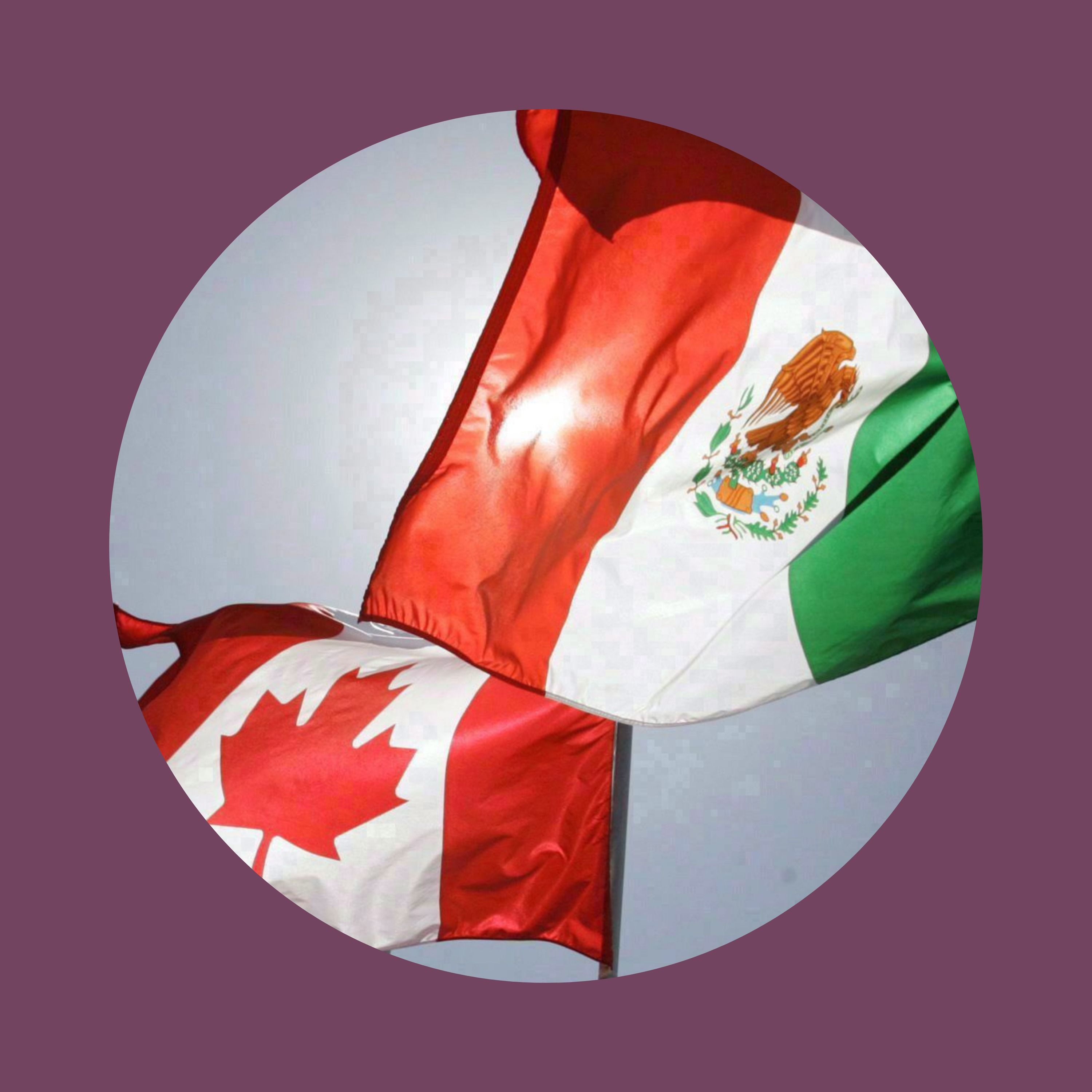
This week, Minister for Canada-U.S. Trade Dominic LeBlanc, led a trade delegation to Mexico. He was joined by government and industry officials, as well as leaders of around 250 Canadian businesses. It’s the largest Canadian trade delegation to Mexico in recent memory, and it’s set against the backdrop of Prime Minister Mark Carney’s goal of diversifying Canadian trading partners.
Mark Rendell, the Globe’s economics reporter, joins the show to talk about the opportunities for growth in Mexico, and how the two countries are preparing for discussions around the renegotiation of USMCA later this year.
Carney’s plan to expand Canada’s defence industry

As part of its plan to remake the Canadian Armed Forces, the federal government earmarked $6.6-billion over five years in the fall budget for its Defence Industrial Strategy. The document was finally released this week, and it details the blueprint for bolstering Canada’s defence industry.
Pippa Norman is The Globe’s innovation reporter, and she covers the business side of defence. She’ll explain why this document is important, the key takeaways, and what the plan means for broader conversations about protecting Canada’s sovereignty.
Questions? Comments? Ideas? Email us at thedecibel@globeandmail.com
...
What social media for AI bots can tell us about consciousness

Much has been made about a new social media platform called Moltbook, where AI agents are posting and appear to be interacting with each other. Some see their posts – especially those about humans – as worrisome. Others are wondering if this is evidence that we’re inching closer to a world where an artificial intelligence system attains consciousness.
Dr. Karina Vold is an assistant professor of philosophy at the University of Toronto. She studies the philosophy of cognitive science, and also researches technology, AI and ethics. She discusses the problems with anthropomorphizing AI and the difference between sentience and co...
Why Carney and Ford are talking about a federal election

The Globe exclusively reported that Prime Minister Mark Carney and Ontario Premier Doug Ford discussed the possibility of a snap federal election this spring. The next federal election is scheduled for no later than 2029, though historically, minority governments usually last around two years. But just how realistic is this speculation of another election?
Laura Stone, who broke the story, and Shannon Proudfoot, a feature writer and columnist based in Ottawa, join host Sherrill Sutherland for a political roundtable about whether Canadians will head to the polls this spring.
Questions? Comments? Ideas? Email us at thedecibel...
Defying time and biology: the Olympic skater making history

Canadian figure skater Deanna Stellato-Dudek will make history this weekend at the age of 42, as the oldest female figure skater to compete in the Olympics in nearly 100 years. She’s had a remarkable journey to get to the Milan Cortina Winter Games, including 16 years away from the ice.
Today, Globe reporter (and passionate figure skater) Robyn Doolittle tells us the story of how Stellato-Dudek got to these Olympic Games, what it takes to become an elite athlete in your 40s, and how athletes are pushing the time limits of their careers.
Questions? Comments? Ideas? Email us...
On the ground in Tumbler Ridge, after the mass shooting
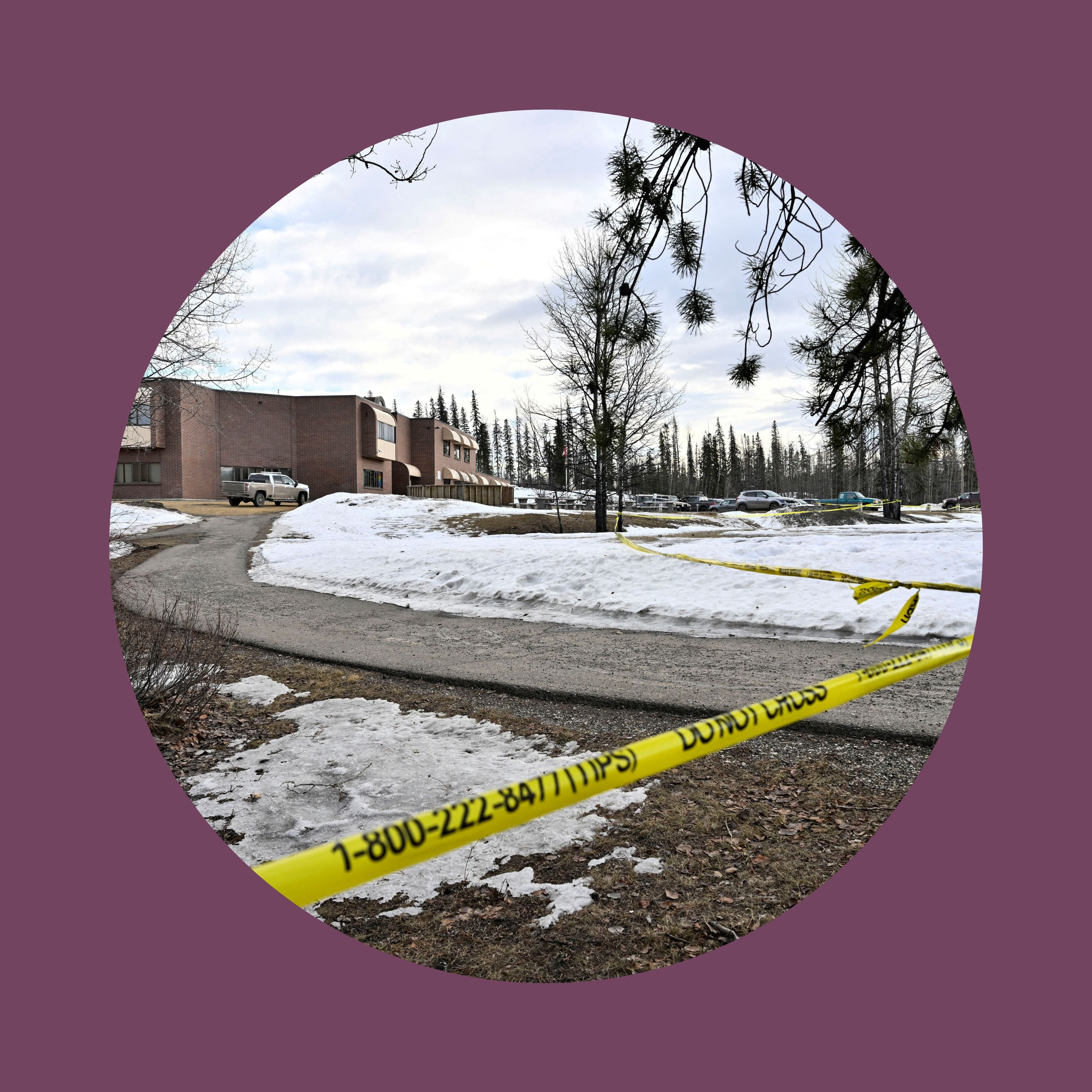
Tuesday’s deadly mass shooting in the community of Tumbler Ridge, British Columbia, marks the second deadliest school shooting in Canadian history. Nine people are dead, including the shooter, and at least 25 others are injured.
Many details are still unknown, but today, we’re talking about the aftermath of the tragedy. Globe reporters Matthew Scace and Alanna Smith give us the view from Tumbler Ridge, and you’ll hear from community members about how they’re making sense of what has happened in their town.
Questions? Comments? Ideas? Email us at thedecibel@globeandmail.com
...
How police corruption allegations erode trust in justice system
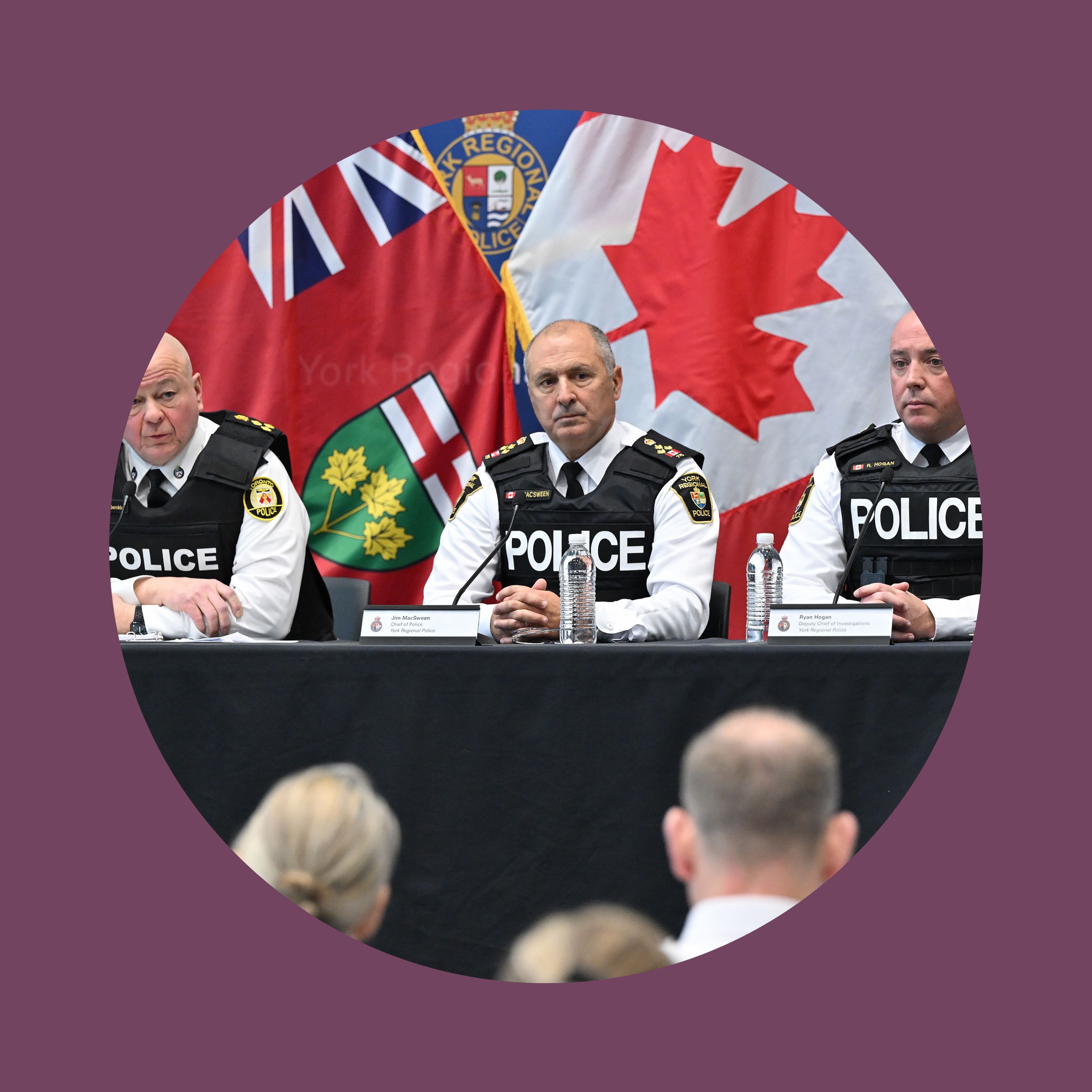
This week, Ontario’s Inspector-General announced it is launching a provincewide review of corruption among police services in the wake of the arrests of seven Toronto police officers and a retired constable. The allegations – including corruption, leaking of information to organized crime members, accepting bribes and drug trafficking – have rocked civic institutions and are proving to be a threat to public trust in policing.
Mike Hager, reporter for The Globe, details the allegations against the officers and why cases of police corruption are difficult to investigate. Later, The Globe’s justice reporter David Ebner joins the show to expla...
Carney shifts gears on EV and climate policies

The federal government recently announced that it is scrapping the zero emissions vehicle mandate – brought in by the Trudeau government in 2022. Zero emissions vehicles such as EVs were supposed to make up 20 per cent of all new car sales this year, increasing to 100 per cent by 2035. This is the latest Trudeau-era climate policy that Prime Minister Mark Carney has rolled back or outright abandoned.
Today, we speak with Adam Radwanski, The Globe’s policy columnist and feature writer. He’ll explain why the electric vehicle mandate was scrapped, what Carney has brought in instead, and what his strate...
Ontario pushes to allow retail access to risky investments

Ontario’s securities watchdog is facing pressure from the Ontario government to open up access to high-risk investments, called private asset funds, to regular, retail investors, according to exclusive reporting by The Globe and Mail. Industry experts warn that this unusual move could lead to investors’ money being locked up for years in long-term real estate or infrastructure projects that have extremely complex fee structures.
Report on Business reporters Clare O’Hara and Jameson Berkow explain how this new proposal from the Ontario Securities Commission came about and what might be driving the Ford government to change the ru...
What’s at stake for Canada at the Milan Cortina Winter Games

The 2026 Milan Cortina Winter Games begin on Friday. The Olympics are always a time to rally behind your country, but this year cheering on Team Canada takes on a different meaning. At a time when Canada is asserting itself as a “middle power,” how will that translate on the podium?
Cathal Kelly is a Globe and Mail columnist who writes about sports. Today, he joins the show to prime Olympics superfans and casual watchers alike for what you need to know about the Milan Cortina Winter Games, where Canada is likely to excel, and how politics could shap...
Voices from inside Alberta’s separatist movement

Canvassers are currently collecting signatures for a petition in Alberta that could trigger a referendum on whether Albertans want to remain a part of Canada. The volunteers are with a group called Stay Free Alberta, whose leaders are Mitch Sylvestre and Jeffrey Rath.
Matthew Scace is a staff reporter for The Globe and Mail based in Calgary. He has been reporting on the separatist movement in Alberta and shares interviews he conducted with the leaders, and some supporters, on how they feel about recent U.S. comments about their movement and why they’ve given up on Ca...
What happened to $10-a-day child care?
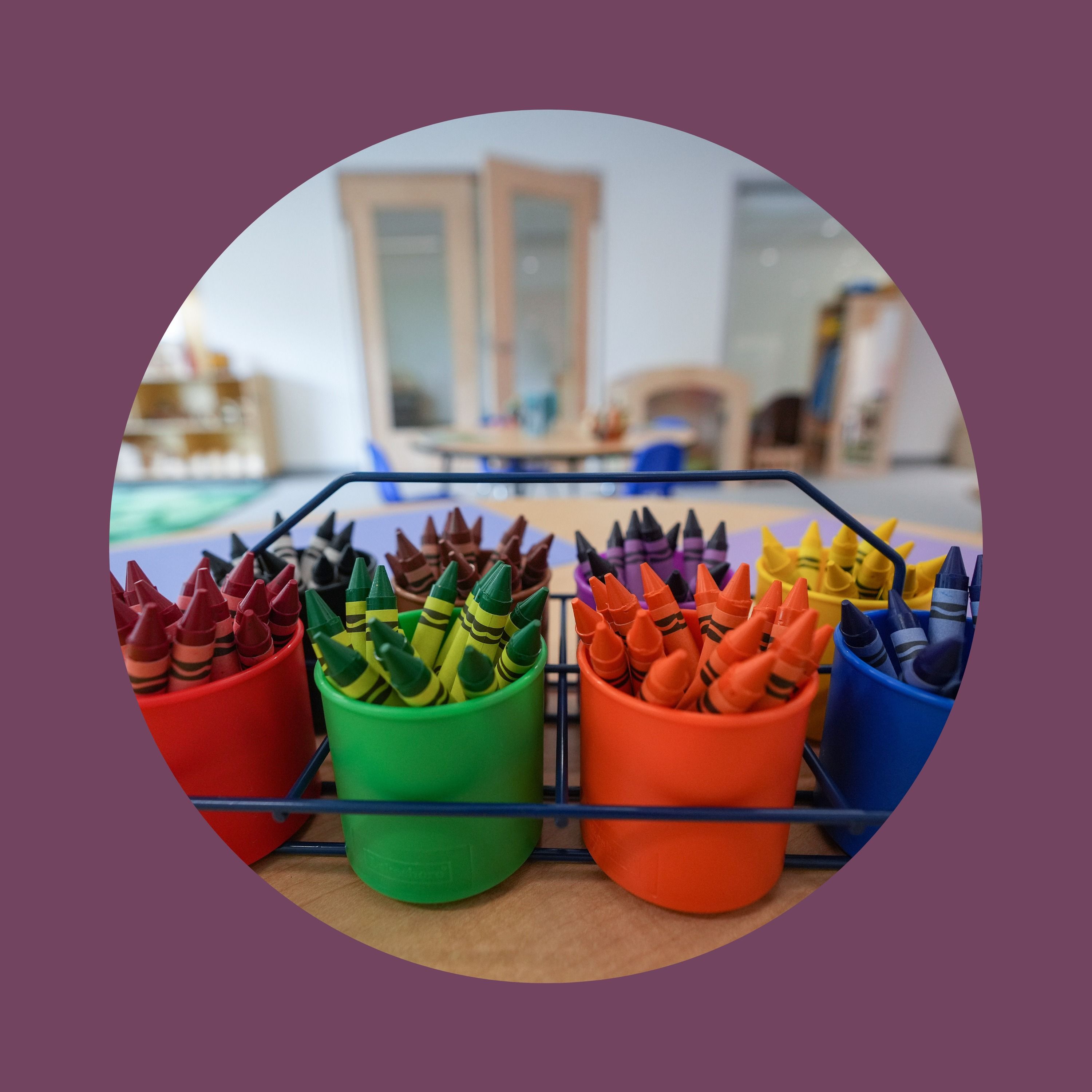
The federal government’s Canada-Wide Early Learning and Child Care program was meant to bring child care fees down to $10 per day and create 284,000 new daycare spaces by the end of March this year. A recent report found the program is expected to miss that goal by 90,000 spaces – and many places haven’t reached the initial $10 a day goal. But this program has made a huge difference for families.
Today, we’re doing a daycare check in with the Globe’s education reporter Dave McGinn. He’ll walk us through what’s worked with the program, what hasn’t, and wh...
U.S. and Iran weigh diplomacy as warships head for the Gulf

Over the last few weeks, U.S. President Donald Trump has repeatedly threatened military intervention in Iran – first over the Islamic Republic’s treatment of protesters, and now, over the country’s nuclear ambitions. U.S. military warships have moved toward striking distance of Iran; meanwhile, Iran’s supreme leader Ayatollah Ali Khamenei warned that a strike on Iran would spark a regional war.
Thomas Juneau is a professor at the University of Ottawa’s Graduate School of Public and International Affairs. He’s here to talk about how close Iran and the U.S. are to re-entering...
Why road salt causes Canada billions in damage each year
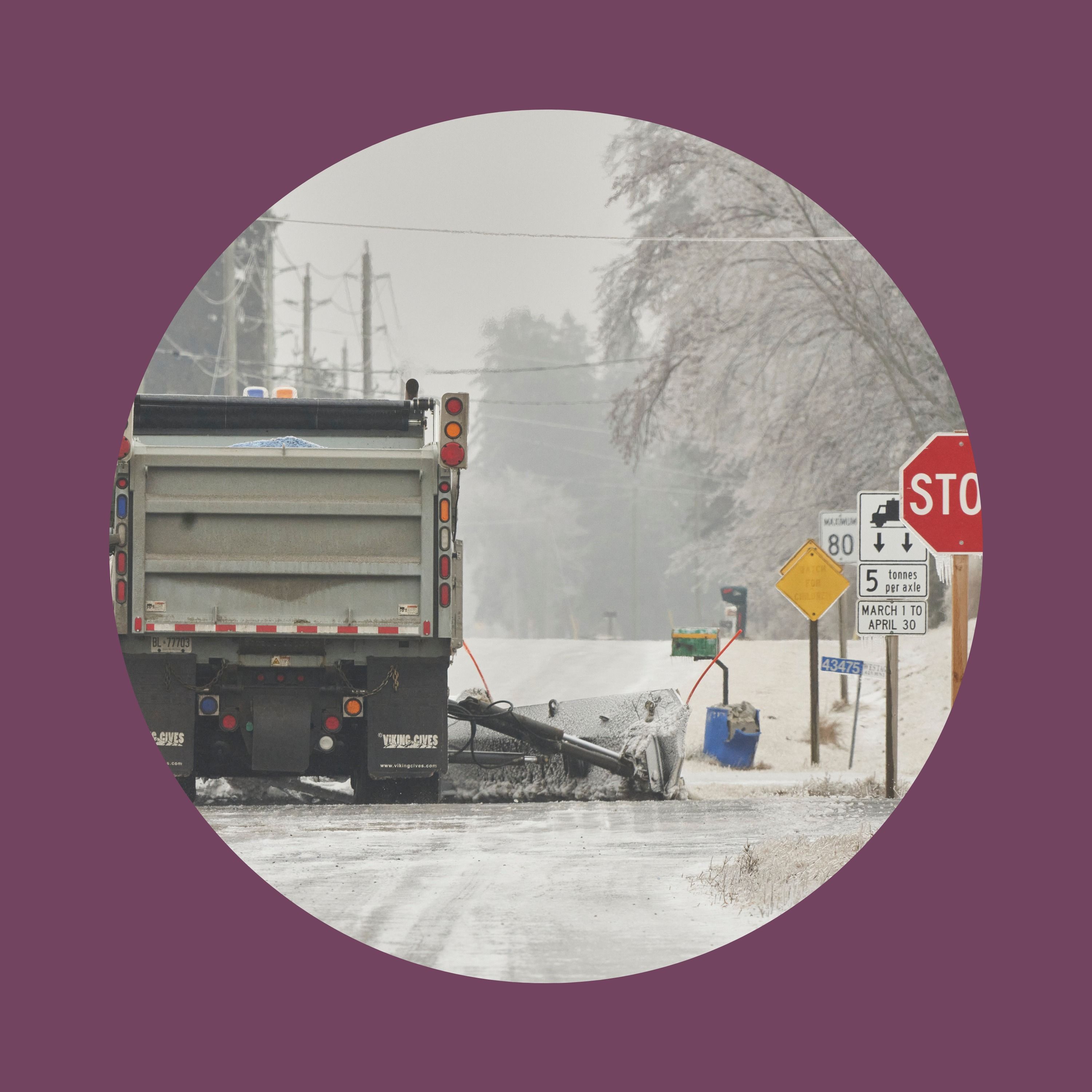
Snow and ice is a fact of life in a long, Canadian winter. So are the millions of tonnes of salt that is used to combat it on roads across the country. But there is a cost to all that salt: damage to property, waterways and other parts of the environment and infrastructure – totalling billions of dollars annually.
Patrick White, reporter for The Globe, explains the science behind why Canada is the biggest consumer of road salt in the world and why the same chemical that is necessary for a winter climate is also endangering water systems.
...Why your grocery bill is still so high

Inflation in Canada has stabilized, but food inflation is continuing to rise. Food prices rose 5 per cent in 2025, and some items saw much larger increases – such as beef and coffee. Prime Minister Mark Carney announced some affordability measures this week – like an increase to the GST credit – aimed at lowering grocery bills.
Today, food economist Mike von Massow explains why food prices remain so high, what’s driving the increase of specific items and what can be done about it.
Questions? Comments? Ideas? Email us at thedecibel@globeandmail.com
Hosted by Simplecast, an AdsWi...
Drug decriminalization is over in B.C. What’s next?
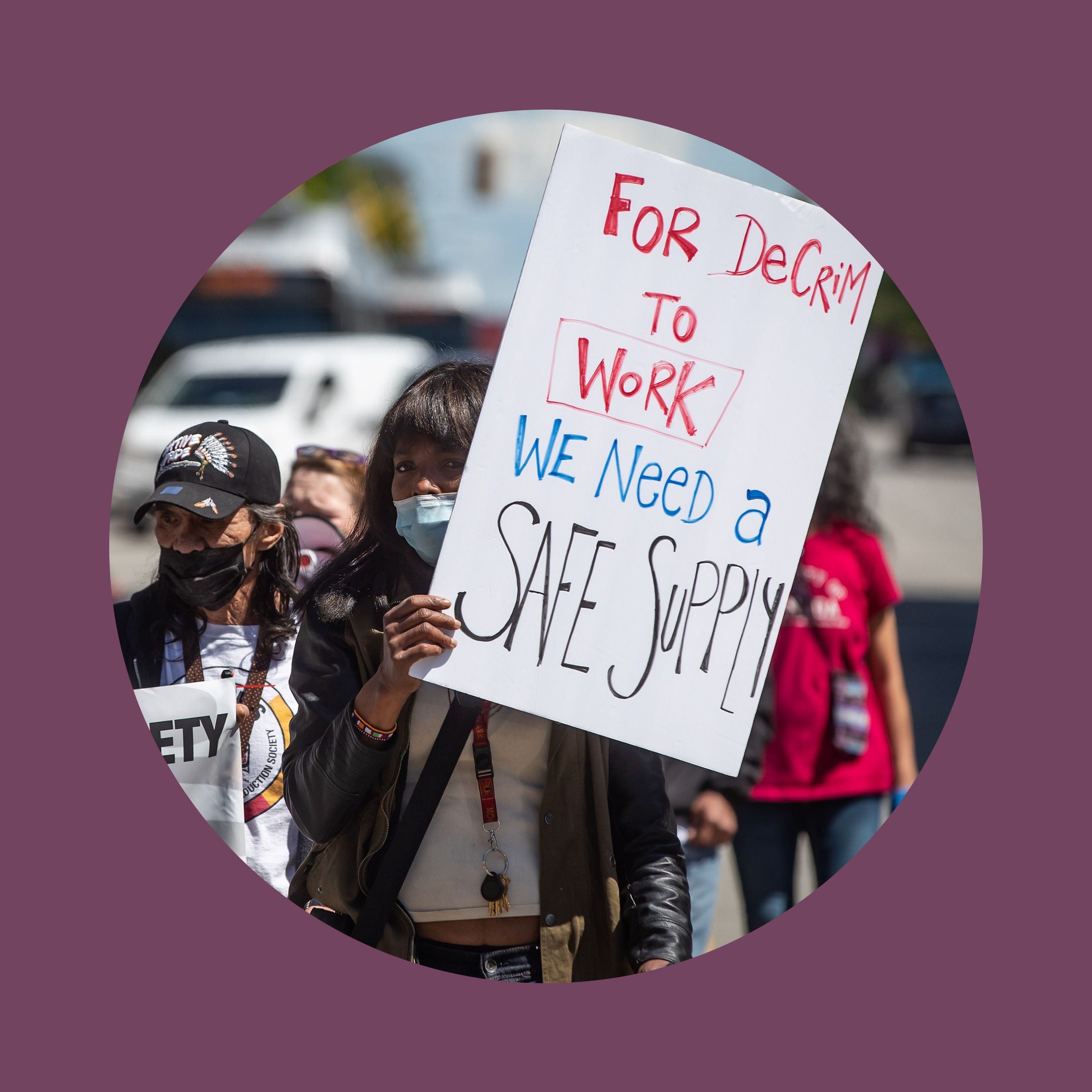
British Columbia’s drug decriminalization pilot program will end on January 31st. The controversial program was introduced in 2023, but was criticized by advocates and political opponents alike. Parts of the policy had already been rolled back as public pressure mounted. The pilot’s cancellation was met with disappointment, especially from First Nations leaders, over the lack of consultation. What does the ending of this policy signal about the B.C. government’s approach to the toxic drug crisis? And what does it mean for Canadians living with addictions?
Andrea Woo, the Globe’s staff reporter covering health and drug...
How Minnesota is fighting ICE on the ground — and in the courts

Some of the 3,000 federal agents in Minnesota are set to leave following the killings of U.S. citizens Renee Nicole Macklin Good and Alex Pretti. ICE and U.S. Border Patrol officers have been in the state enforcing U.S. President Donald Trump’s immigration agenda since December amid growing unrest. Now, Minnesota is suing the federal government, arguing that the Trump administration is breaching people’s rights and acting beyond its powers. And what happens next on the ground and in the courts could set a precedent, as ICE operations continue throughout the U.S.
Globe staf...
Alleged drug kingpin Ryan Wedding arrested

Ryan Wedding, former Canadian Olympic snowboarder turned alleged drug lord, is pleading not guilty to U.S. federal charges of leading an international drug trafficking ring and orchestrating the murders of multiple people. Wedding had been on the run for more than a decade and was on the FBI’s Top Ten Most Wanted list. But the sprawling criminal investigation crosses borders and legal experts are now questioning what lawful norms and treaties may be overridden in the race to prosecute Wedding and his associates in the U.S.
Colin Freeze, crime and justice reporter for The Gl...
What you need to know as Parliament resumes
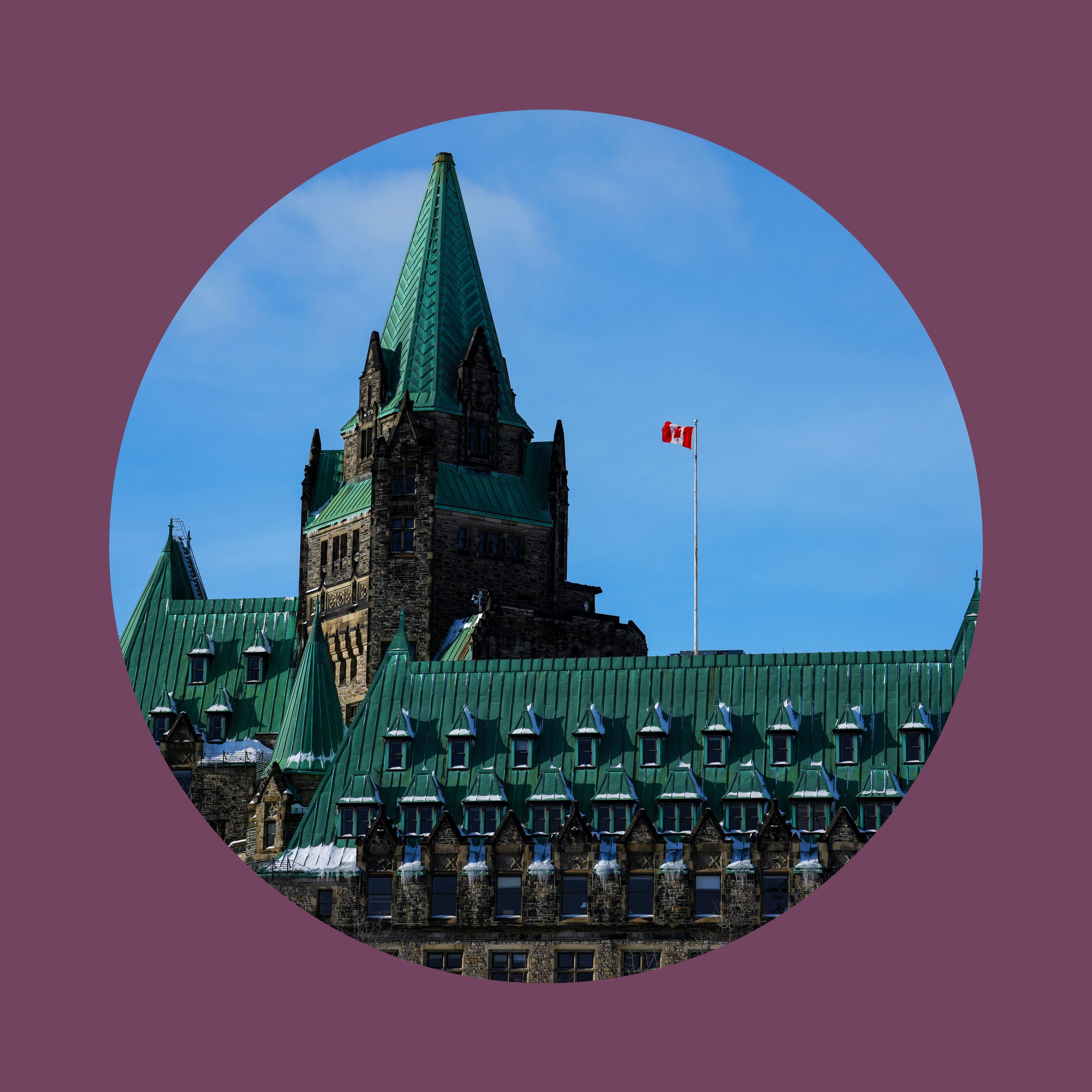
It’s been a busy month abroad for Prime Minister Mark Carney, but now, he’ll have to turn his focus back to domestic issues as Parliament returns on Monday. There’s a lot to catch up on — later this week, the Conservatives will have their leadership review of Pierre Poilievre during their convention in Calgary, and the NDP are in the midst of their leadership race. The issue of national unity remains top of mind as both Alberta and Quebec look towards possible referendums in the coming months.
Bill Curry is the Globe’s Deputy Ottawa Bureau Chi...
Happy Enough: Can psychedelics improve your mental health?
Psychedelics, substances like LSD and psilocybin mushrooms that cause altered states of consciousness, often remind people of hippies in the 1960s. But more researchers are looking into their potential benefits for our well-being. Scientists say psychedelics – which are illegal for recreational use in Canada – could have massive implications on how we treat and heal from major mental health disorders like PTSD, depression and anxiety. Garvia speaks with Dr. Monnica Williams, clinical psychologist and professor at the University of Ottawa, where she is the co-director of the new master’s program in psychedelics and consciousness studies. They discuss the latest resear...
How the world changed this week at Davos
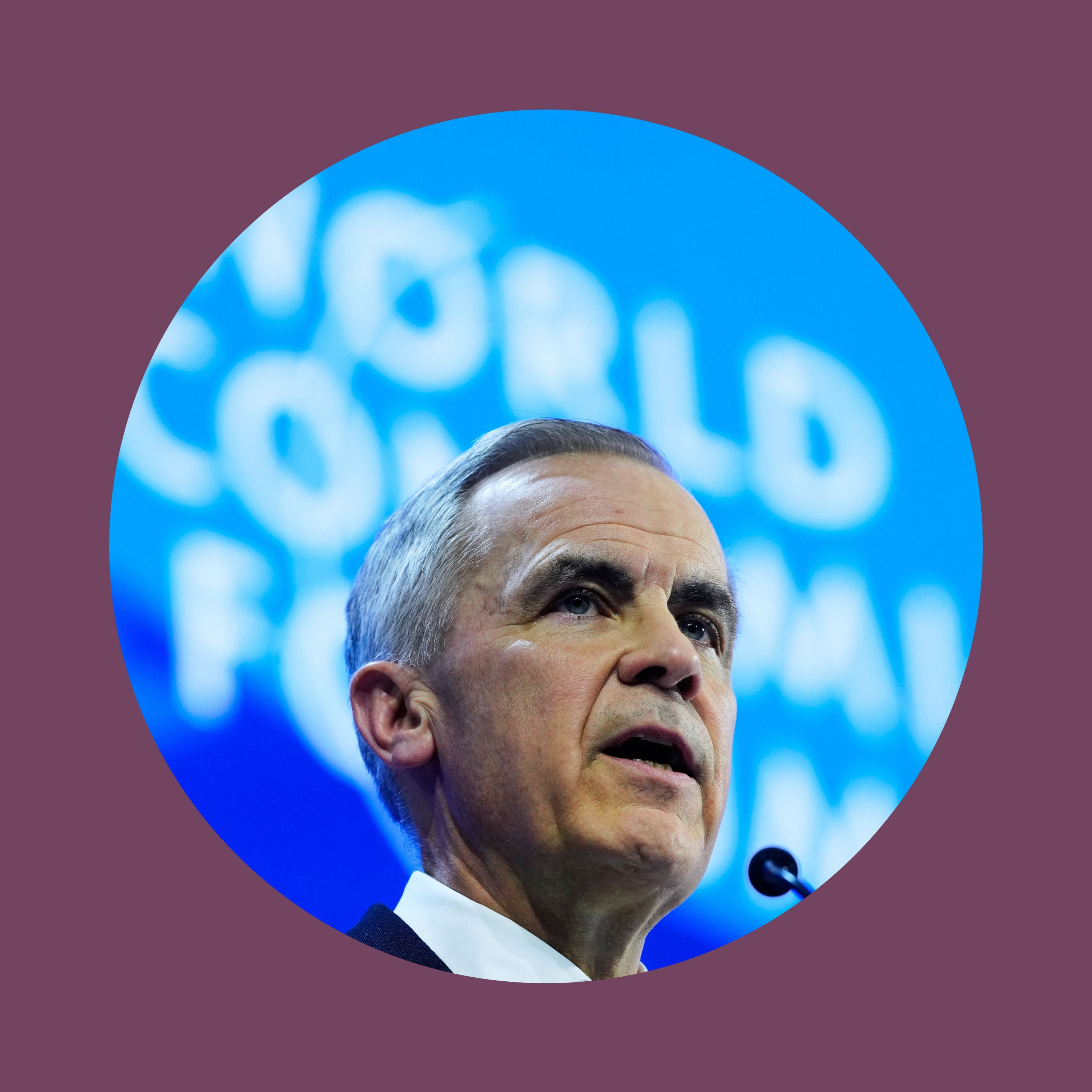
This week, Prime Minister Mark Carney and U.S. President Donald Trump made waves in Davos, Switzerland as both offered competing visions of a new world order. Government and business leaders were in the Alps for the annual World Economic Forum, where the U.S. struck a ‘deal’ with NATO on Greenland and Trump launched his Board of Peace.
The Globe’s international affairs columnist Doug Saunders is here to explain Canada’s place in a changing world order, as long-standing partnerships were tested and the foundation for competing alliances was laid.
Questions? Comments? Ideas? Email us...
What Carney’s China trade deal means for EVs in Canada
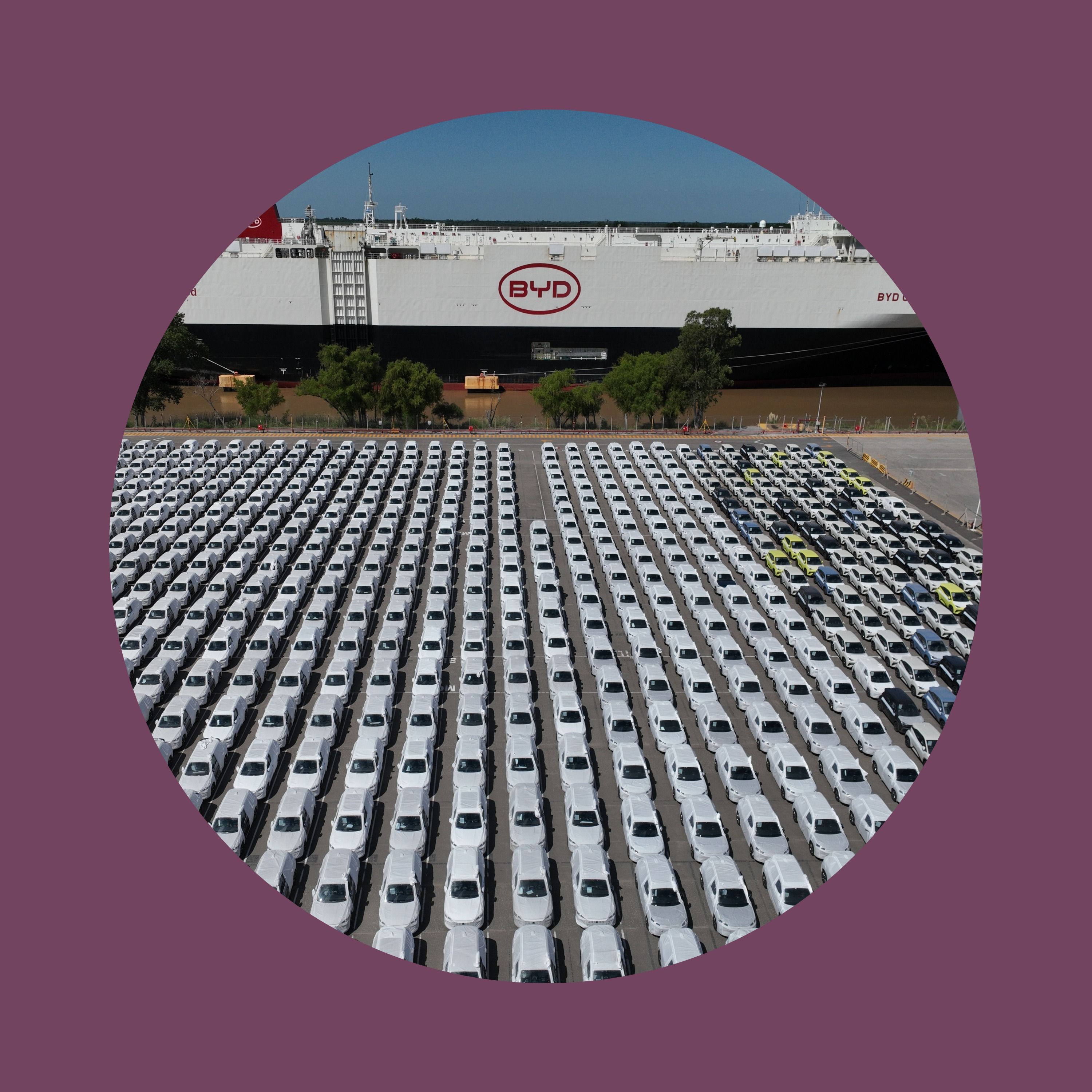
As part of Canada’s new trade deal with China, 49,000 Chinese-manufactured electric vehicles will be allowed to be sold in the Canadian market this year. It’s a big change from our previous 100 per cent tariff on Chinese-made cars. Auto leaders and Ontario Premier Doug Ford have criticized the deal, saying it puts the country’s auto sector at risk when it’s already facing pressure from the U.S. and Donald Trump’s tariffs.
Dimitry Anastakis is a professor at the University of Toronto in the Department of History and the Rotman School of Management, and his resear...
Military models invasion of Canada as Trump threatens Greenland
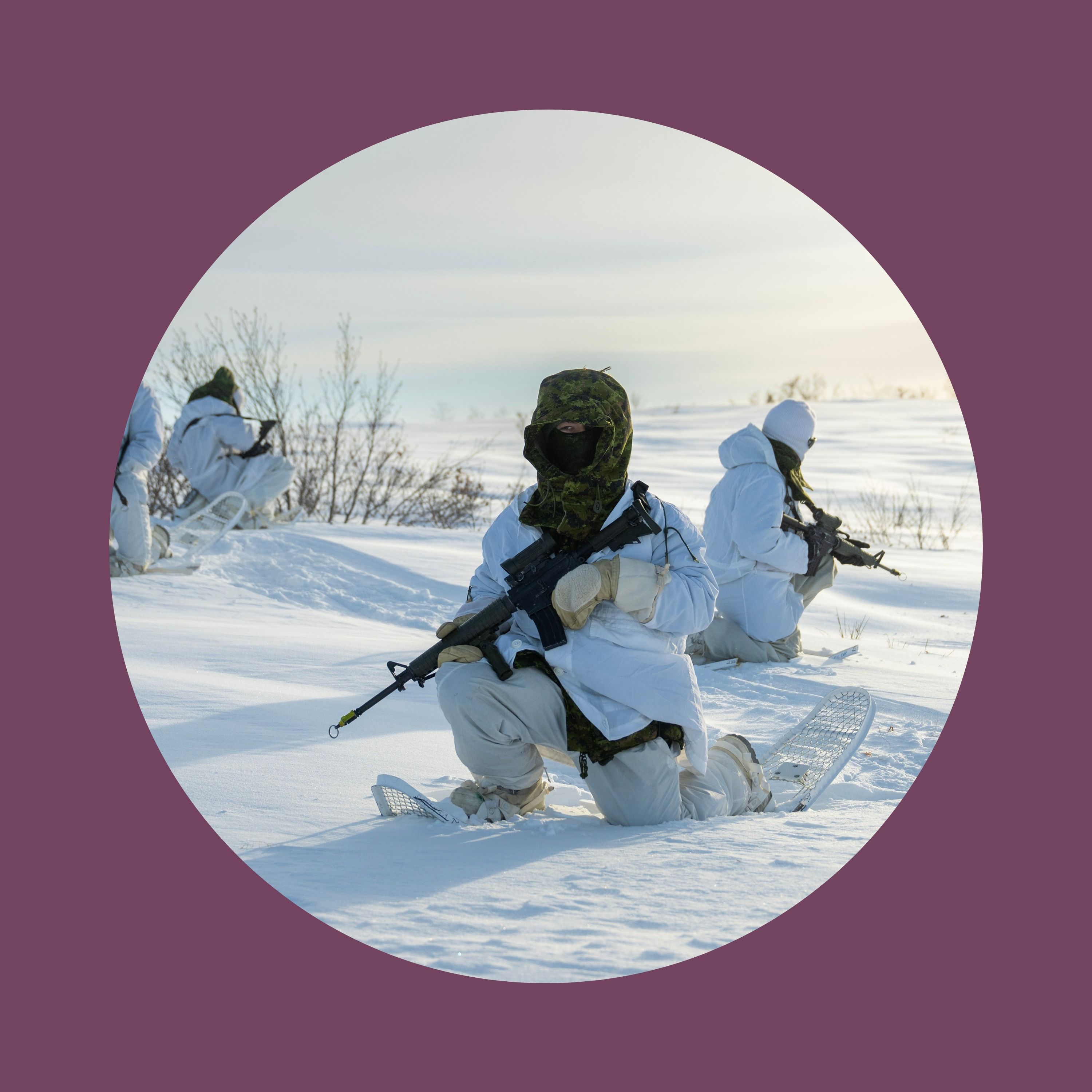
As U.S. President Donald Trump has continued to ratchet up threats against Greenland, Canada has weighed plans to send soldiers there as part of a NATO exercise. In a speech at the Davos Conference on Tuesday, Prime Minister Mark Carney expressed support for Greenland, but did not say whether Canada would indeed send troops.
Meanwhile, according to senior government officials, the Canadian Armed Forces have modelled a hypothetical U.S. military invasion of Canada, and the country’s potential response. Robert Fife, the Globe’s Ottawa Bureau Chief, joins the show to talk about how Canada’s mili...
What Legault’s resignation means for Quebec

Last week, Quebec Premier François Legault announced his resignation amidst plummeting poll numbers, while acknowledging Quebeckers are calling for change. The state of the province’s politics are now in flux, as the Parti Quebecois surge in popularity and a possible referendum on Quebec’s sovereignty is on the horizon.
Konrad Yakabuski, Globe columnist and Quebec politics writer, discusses Legault’s legacy, the divide between sovereigntists and federalists and where the province’s parties stand ahead of a fall election.
Questions? Comments? Ideas? Email us at thedecibel@globeandmail.com
Hosted by Simplecas...
Why the flu is so bad this year

The flu season hit Canada hard and fast this year, seemingly reaching its peak in late December. But it’s not over yet: one public health official says we’re still in the ‘heavy, middle part’ of flu season.
Alanna Smith explains what’s different about this year’s dominant variant of the influenza virus and the impact it’s having on Canada’s health care system.
Questions? Comments? Ideas? E-mail us at thedecibel@globeandmail.com
Hosted by Simplecast, an AdsWizz company. See pcm.adswizz.com for information about our collection and use of personal...
Happy Enough: Why awe makes us happier
What happens when we stop rushing around and pause to take in the vastness of the world around us? In this episode of Happy Enough, we explore awe — the emotion that can make you feel surprisingly small, and, at the same time, happier. To break down the science behind awe and why it makes us feel better, Garvia speaks with Dacher Keltner, professor of psychology at UC Berkeley and the author of ‘Awe: The new science of everyday wonder and how it can transform your life’. They discuss how awe affects our bodies and simple ways to incorporate it into o...
International law in the Trump era

In less than a year, U.S. President Donald Trump’s second term has re-shaped the international order. From levying tariffs against much of the world, turning against long-standing allies, capturing Venezuela’s president, and threatening to annex Greenland – the U.S. has flouted international law and ignored the traditional rules-based order.
Michael Byers, Canada research chair on global politics and international law at the University of British Columbia, is on the show to explain the legal agreements and treaties that govern the international order and whether it’s possible to hold powerful countries to account when they def...
What Greenland thinks about Trump’s threats of annexation

For weeks, U.S. President Donald Trump has threatened to annex Greenland, an autonomous region of Denmark. That led to a meeting on Wednesday between a delegation of Danish and Greenland foreign ministers and U.S. Vice-President J.D. Vance and Secretary of State Marco Rubio. The two sides did not seem to come to any kind of conclusion.
The Globe’s Europe correspondent, Paul Waldie, is in Greenland to get a sense of how people are feeling on the ground. He was in Denmark earlier this week. He joins the show to tell us what he’s le...
Death toll climbs as Iranians protest against regime

Protests in Iran ramped up over the weekend after the Islamic Republic regime – ruled by Ayatollah Ali Khamenei – instituted an internet and phone blackout. But despite this, reports started to come out about a crackdown. On Tuesday, an Iranian official said the death toll, composed of both protesters and security personnel, was over 2,000 people.
The protests have garnered some global supporters, including U.S. President Donald Trump, who has issued threats to the Iranian regime over its treatment of the protesters.
Today’s guest is Thomas Juneau. He is a professor with the Graduate School of Pub...
Carney’s high-stakes trip to China
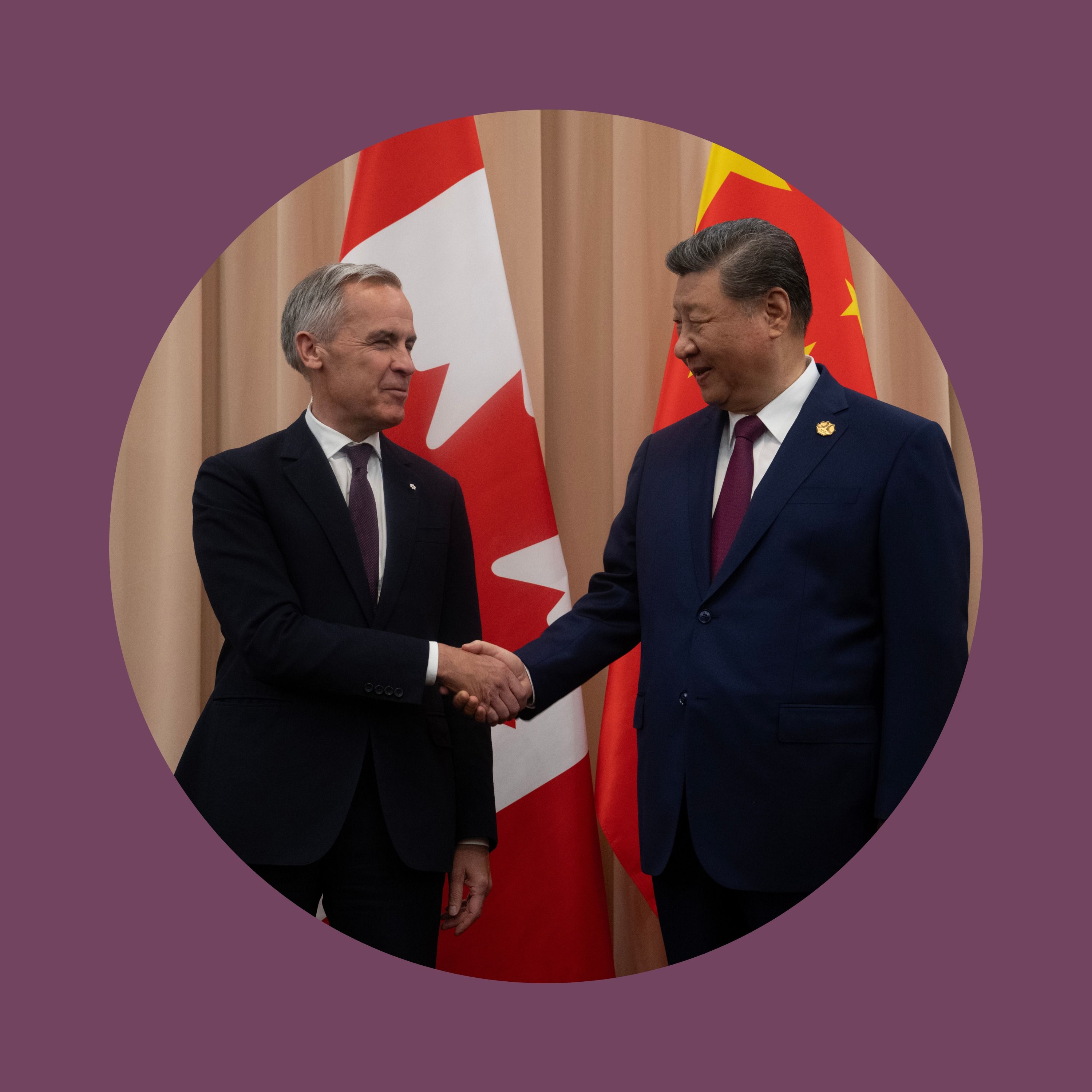
This week, Prime Minister Mark Carney will head to China, marking the first time a Canadian prime minister has gone to China since 2017. Recent interactions between Canada and China have been wracked with tension and international incidents. But there is much at stake in this meeting, with Canada looking for new trade partners as the United States becomes increasingly unreliable.
Steven Chase is the Globe’s senior parliamentary reporter. He’s here to talk about what Carney needs to balance in order to strengthen economic ties with China without upsetting the U.S., and what’s next for th...
Why gyms have become so fancy and expensive

The new year is upon us and for some of us, that means New Year’s resolutions. These goals often involve improving our fitness, or going to the gym more often. But that’s not always cheap with gym membership and classes costing more and more.
In today’s episode, host Sherrill Sutherland and The Globe’s healthy living reporter, Graham Isador, try a class at one of Toronto’s luxury gyms, Sweat and Tonic. They share their experiences and Graham discusses why gym prices have risen so drastically and how you can make your fitness resolutions possible. ...
Chrystia Freeland resigns, takes new role with Ukraine
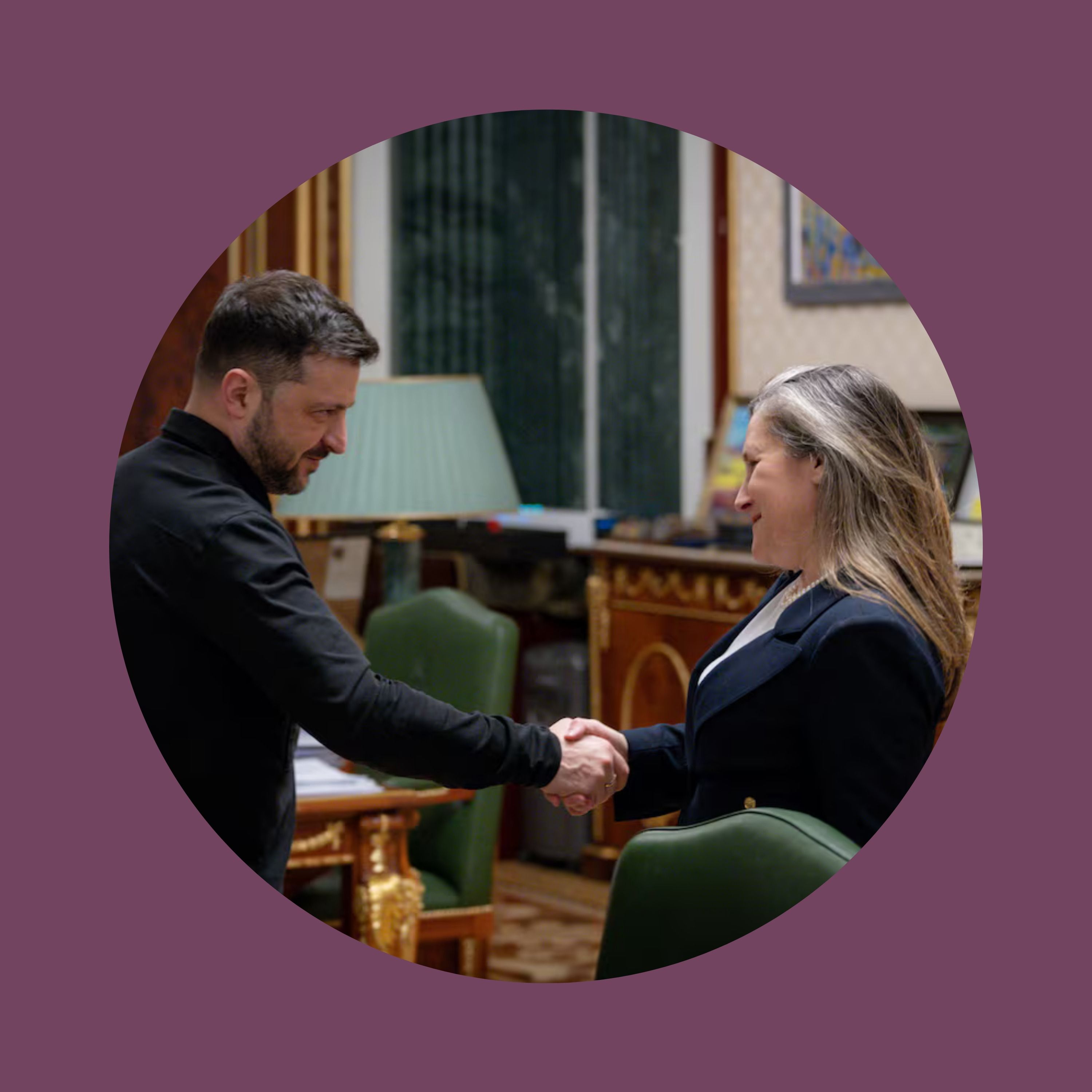
Today is Chrystia Freeland’s last day in Canadian politics, but she still plans to work in government – just not this one. On Monday, Ukrainian President Volodymyr Zelensky announced that he had appointed the former Liberal cabinet minister his new economic adviser. The news sparked a week of backlash in Ottawa, as many raised concerns that a sitting member of parliament working with a foreign government created a conflict of interest.
The Globe’s senior reporter, Stephanie Levitz, joins The Decibel from Ottawa. She’ll explain what we know about Freeland’s new role, the questions it’s raised, an...
The people pursuing impossible goals

The new year is a time of goal setting. Culturally, there’s pressure to set resolutions that you are meant to achieve in due course. Think: weight loss, healthy eating, a new hobby. But what if you commit to something you know you can’t achieve? And what if you make that your life’s work?
Mark Medley, the Deputy Editor of The Globe’s Opinion section, and author of ‘Live to See the Day: Impossible Goals, Unimaginable Futures and the Pursuit of Things That May Never Be’, profiled people who’ve done just that. He’s on the show to e...
Unpacking the U.S. strategy to control the Western hemisphere

Following the U.S. attack on Venezuela, President Donald Trump referenced the Monroe Doctrine – a centuries-old ideology that posits American control and dominance in the Western hemisphere. That idea was also cited in the Trump administration’s new National Security Strategy outlining U.S. foreign policy. After campaigning on non-intervention, is this now Trump’s blueprint for dealing with the rest of the world?
Vincent Rigby, a professor at McGill University’s Max Bell School for Public Policy and former national security adviser to Prime Minister Justin Trudeau, joins The Decibel to parse through the details of Trump’s...
